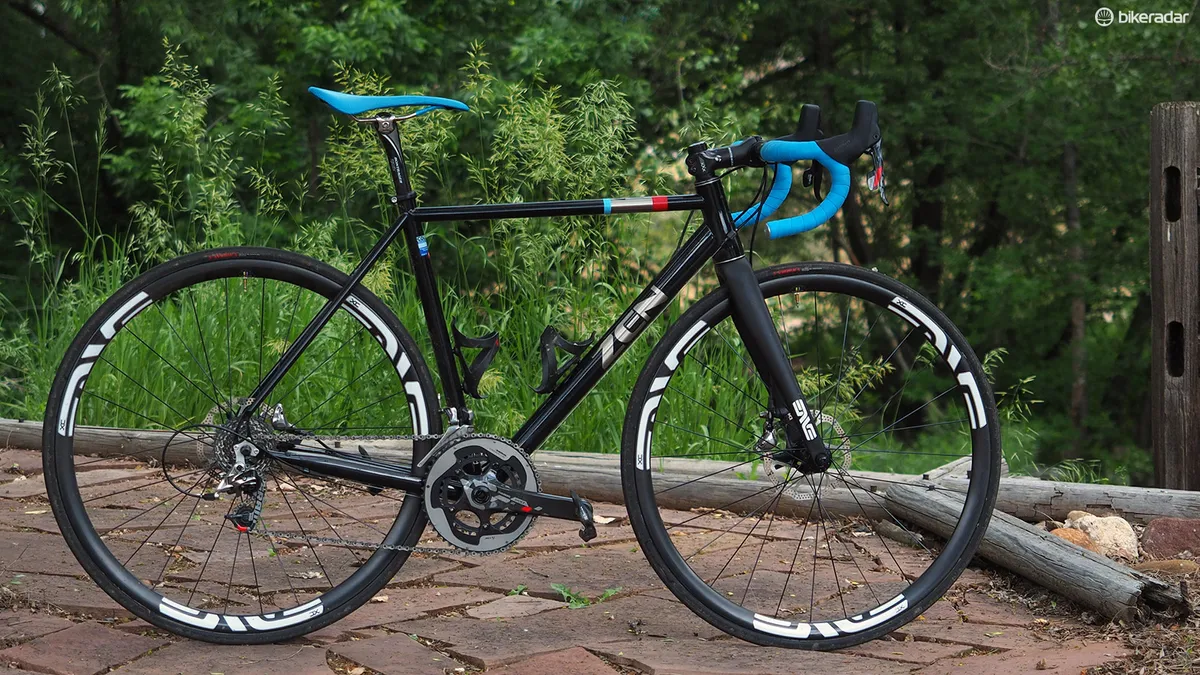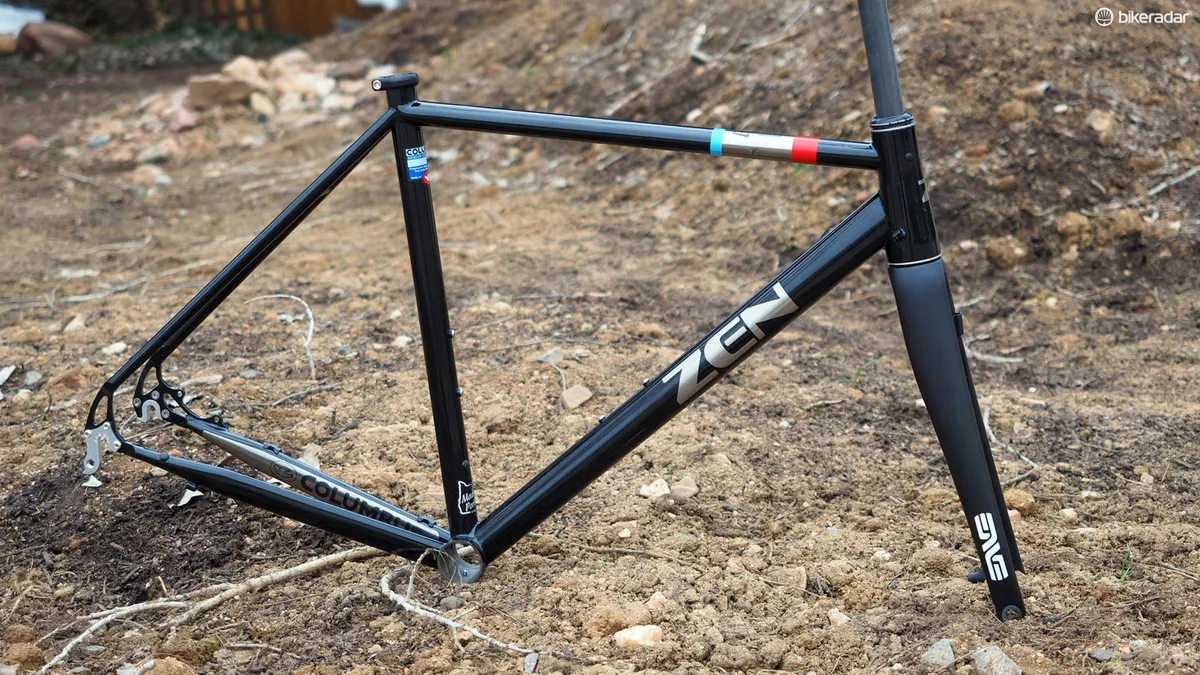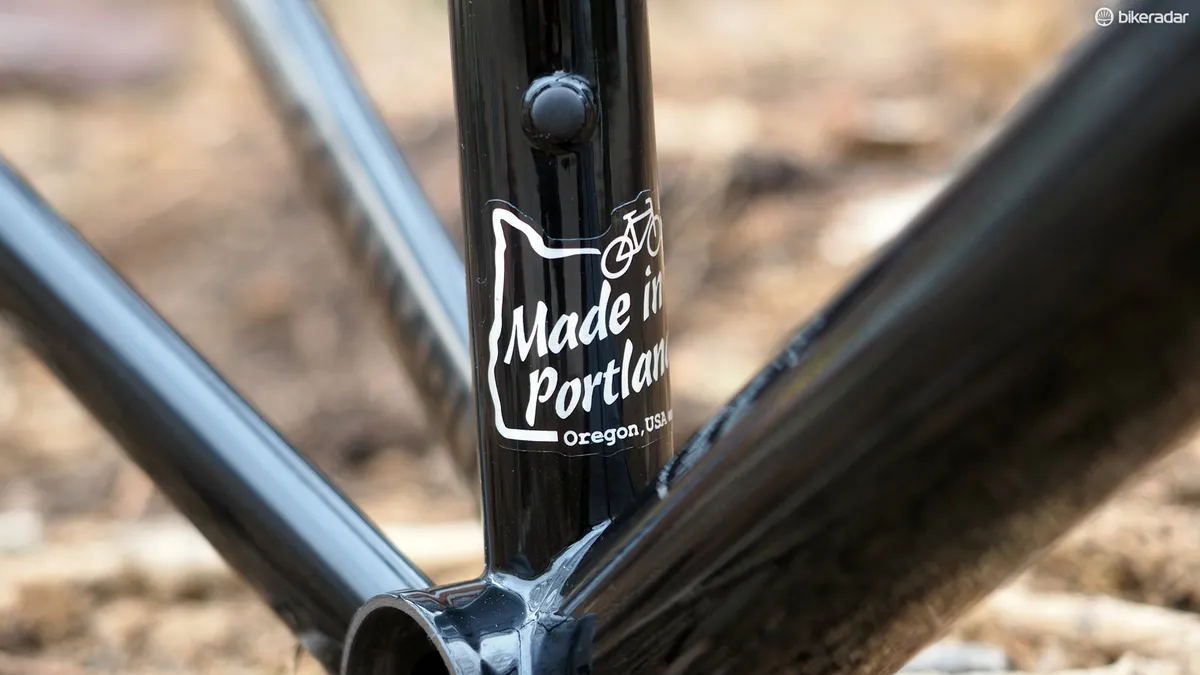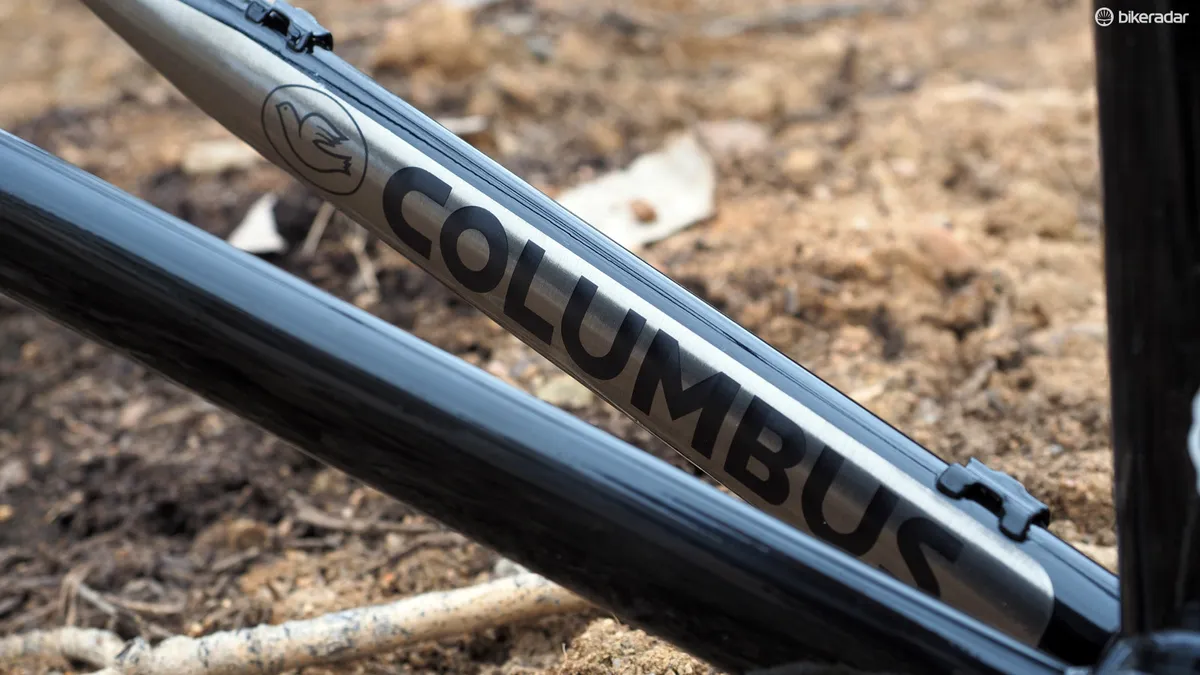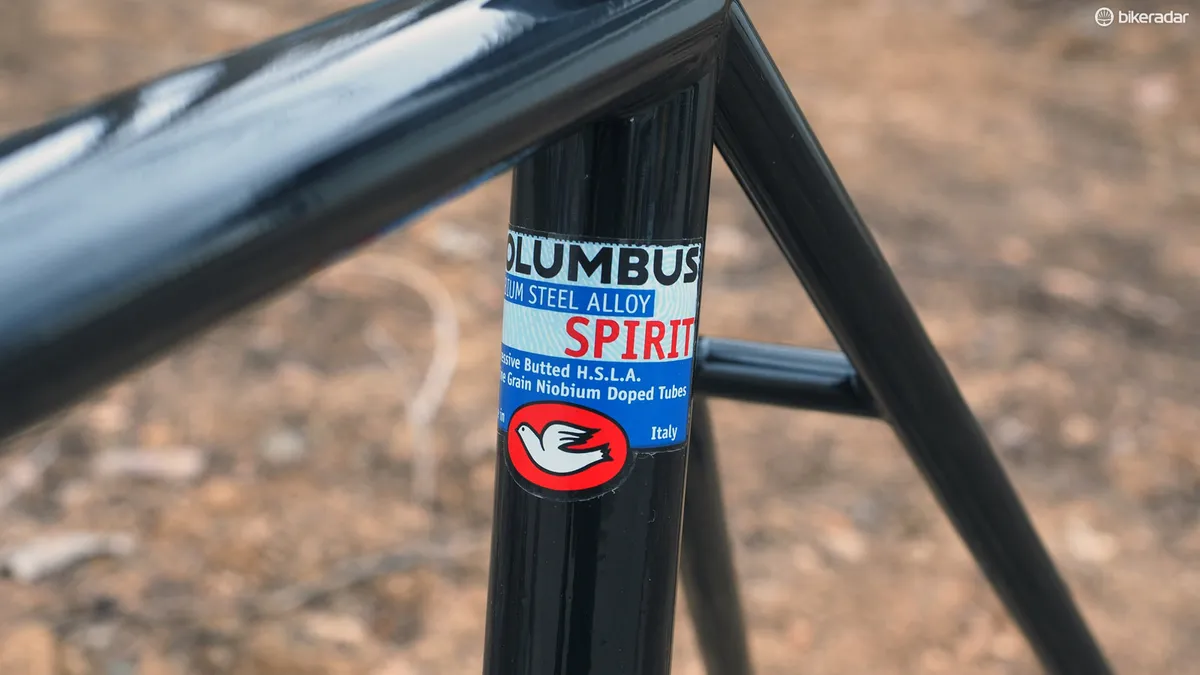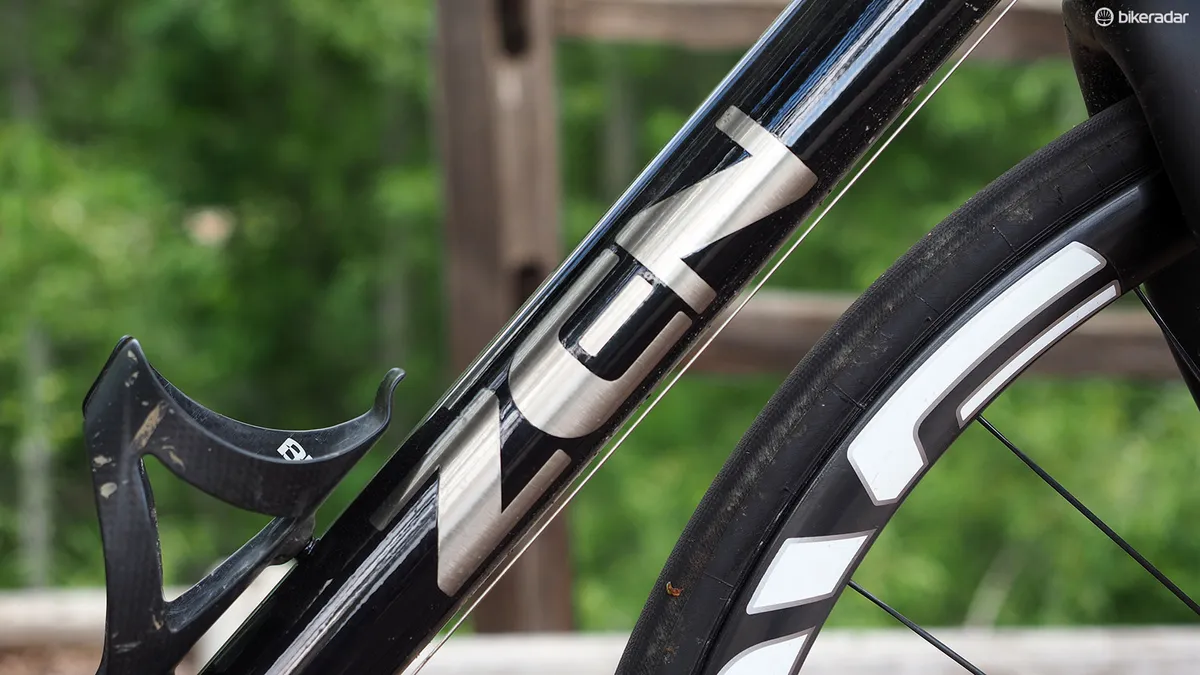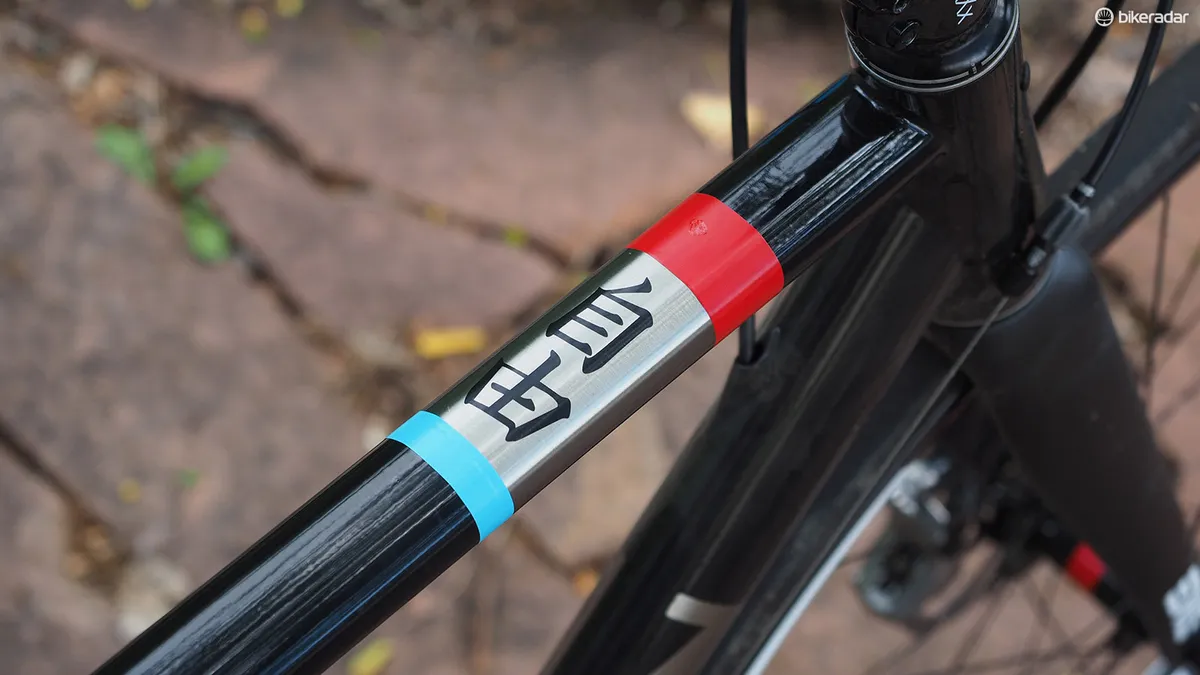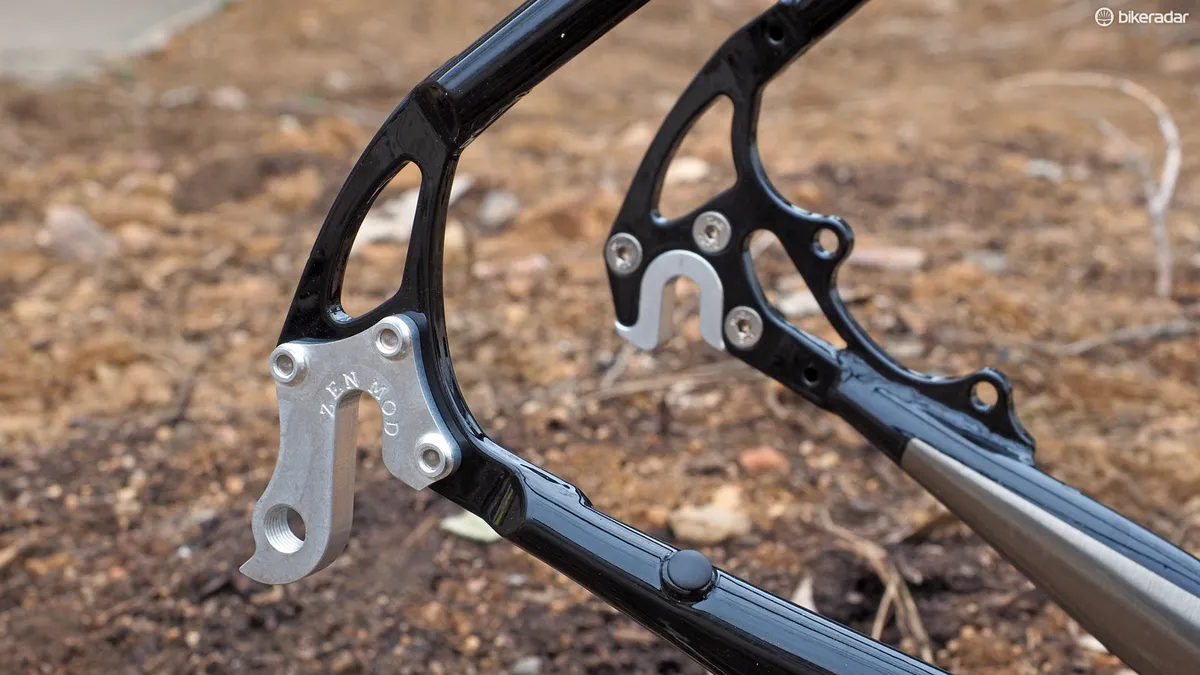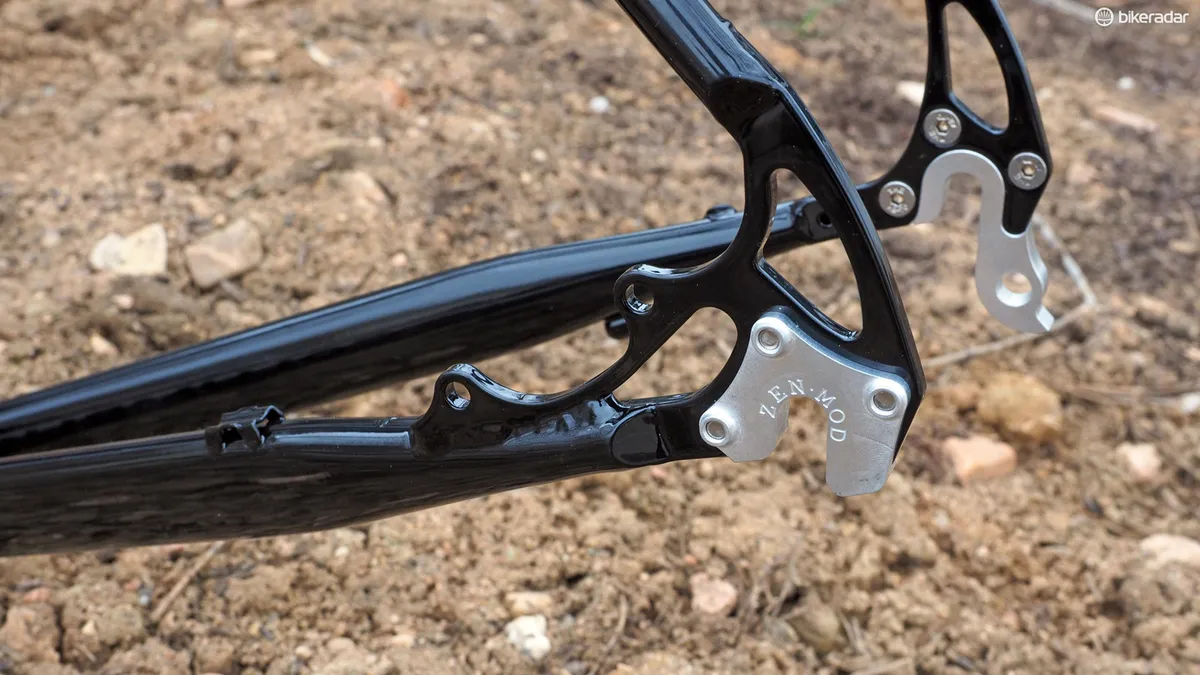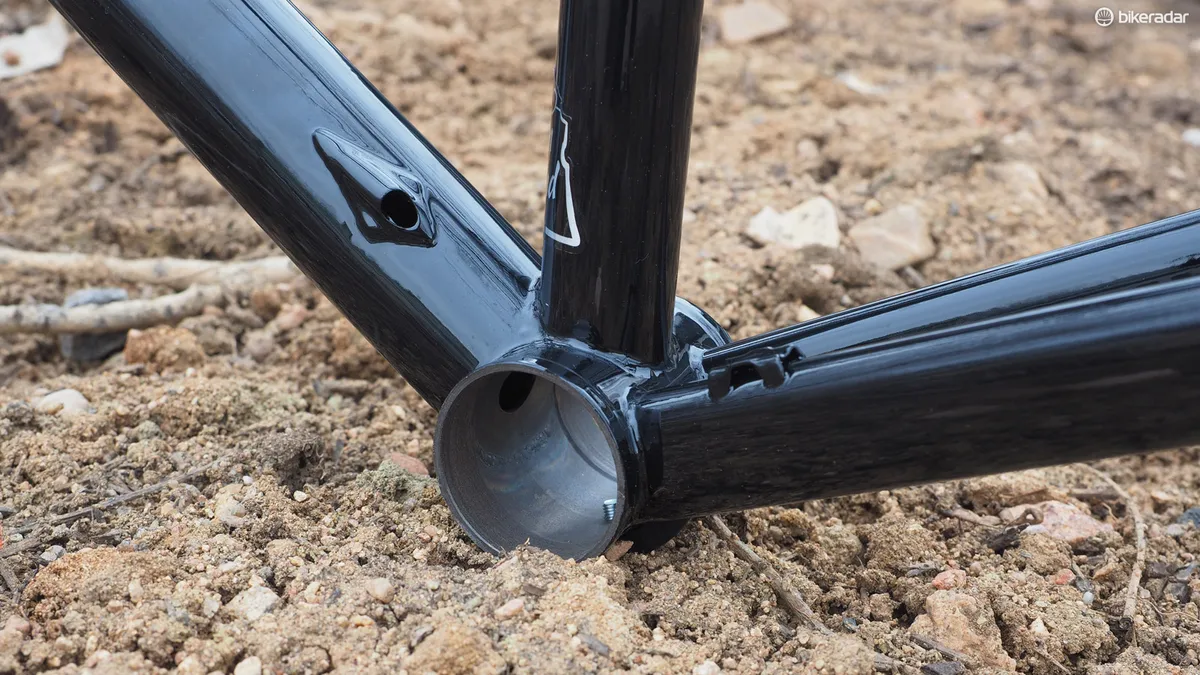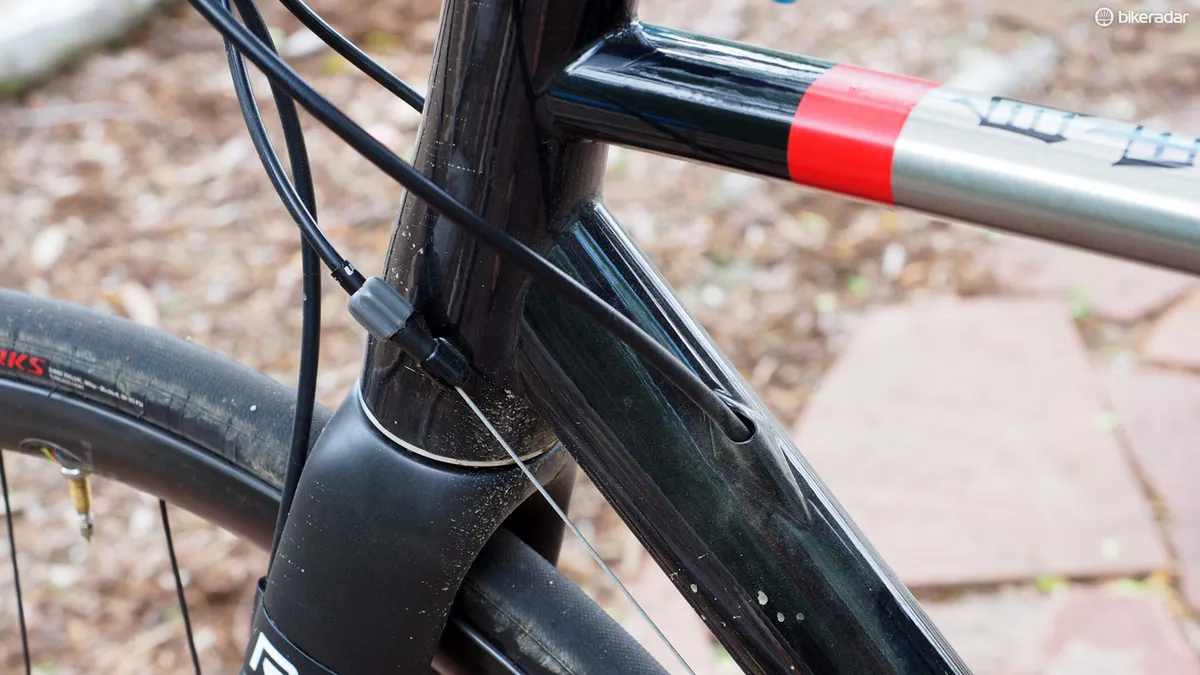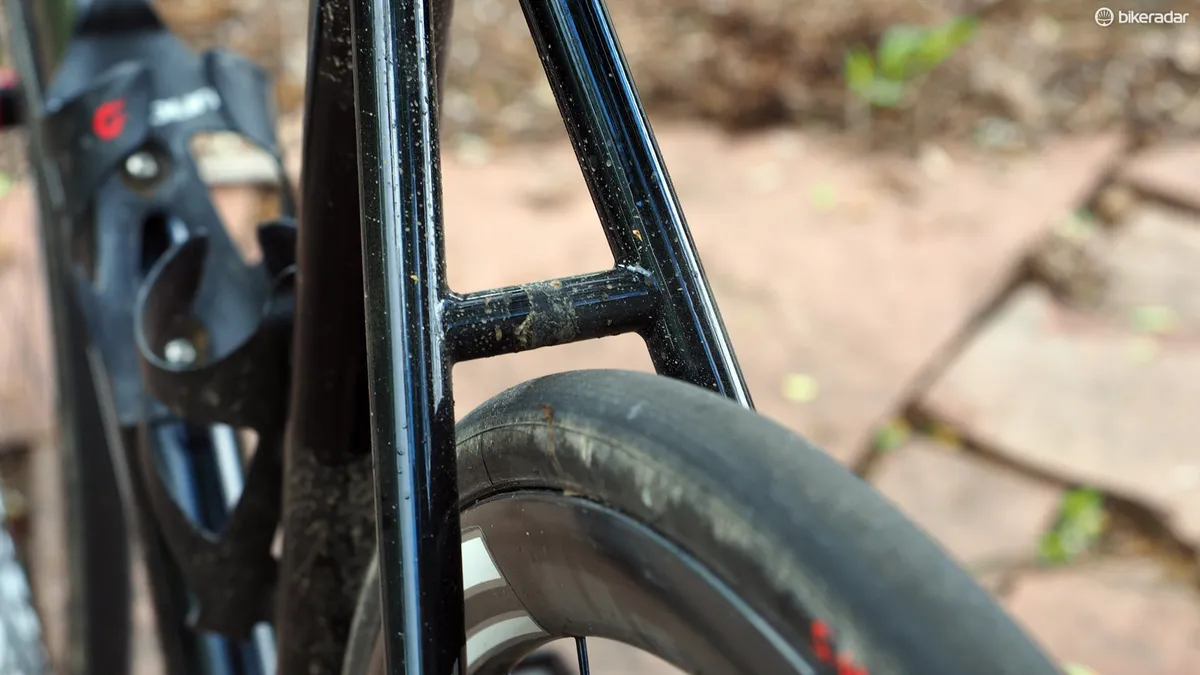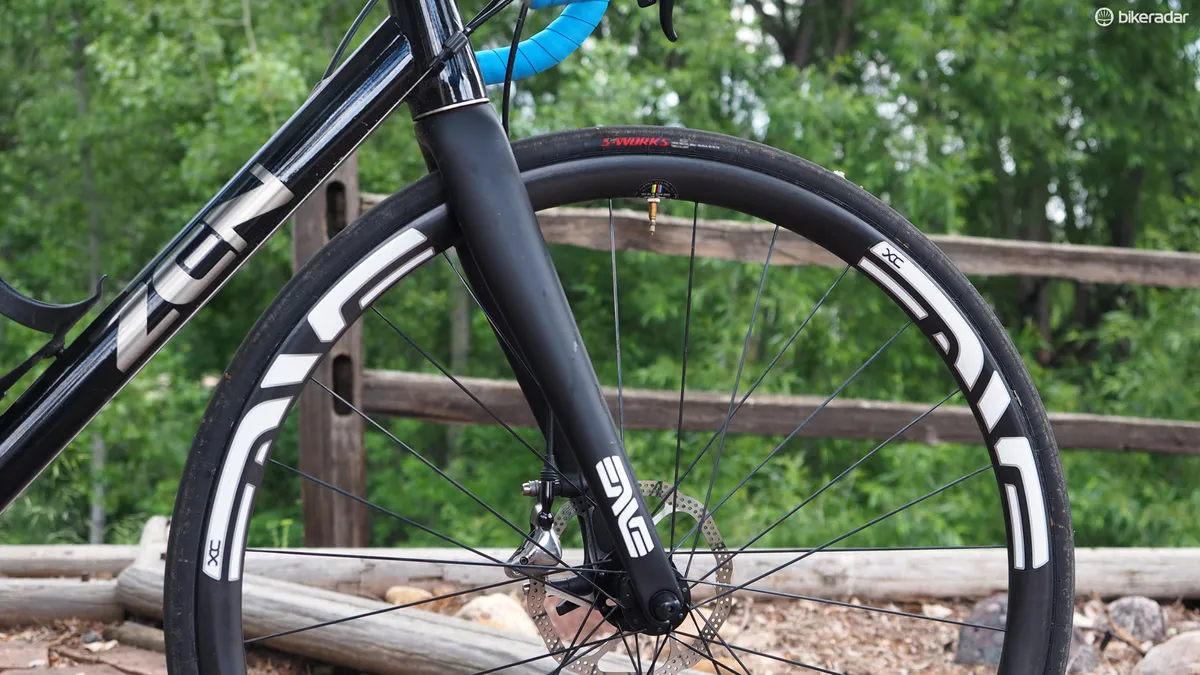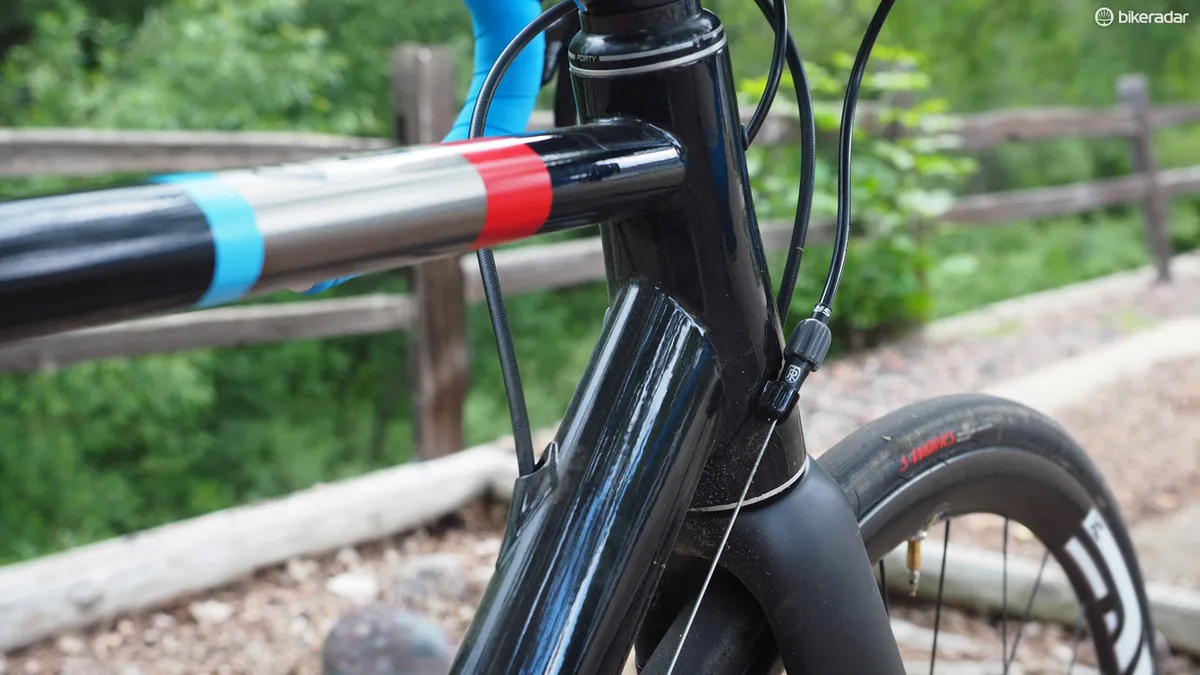Portland, Oregon-based builder Zen Bicycle Company proves that steel doesn’t have to be synonymous with ‘old’ or ‘slow’. The company’s simply named ROAD frame pairs a thoroughly modern Columbus HSS Spirit oversized niobium steel tubeset with an Enve carbon fork, Zen’s own convertible dropout design, and disc brakes at either end for a quintessentially springy and lively ride that’ll quickly help you forget about those extra grams.
Feedback and personality galore
If you love the magic carpet feel of many carbon road frames, you can stop reading now because the Zen ROAD most definitely is not the droid you’re looking for. Instead, the oversized, thin-walled tubing is highly communicative of what’s going on down below, faithfully transmitting road texture and bumps as if reading braille.
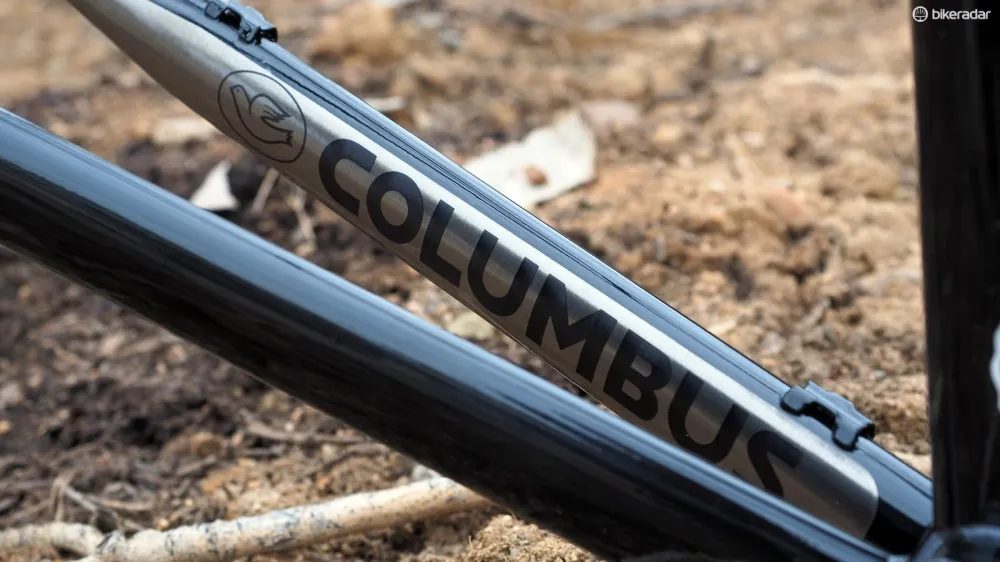
The Columbus Spirit HSS tubing imparts a wonderfully communicative ride quality
That’s not to say that the ROAD is harsh, and in fact, it’s anything but (in most situations). The blacktop might very well be constantly speaking to you but it’s more like a helpful narrative, not someone screaming obscenities. There’s heaps of springiness, ‘snap’, and ‘pop’ to the ride quality, and the oversized pipes are admirably responsive under power.
However, that directness can be a bit much at times, particularly on dirt roads with lots of washboard or on especially poor pavement where I would have appreciated a more muted ride. Keep in mind that this is all with ultra-supple (but relatively narrow) 24mm-wide Specialized Turbo tubeless clinchers installed on Enve carbon rims and although it’s a rather tight fit, Zen officially says there’s room at either end for 28s. Going with that higher-volume size certainly goes a long way toward smoothing out small imperfections but it does add a bit of rotating weight.
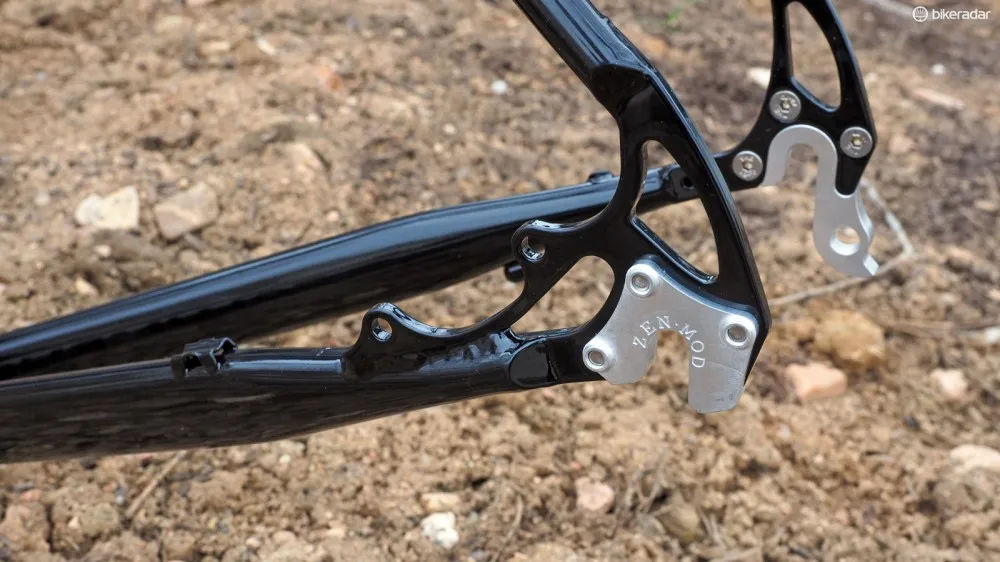
The dropouts feature interchangeable alloy inserts to convert between quick-release and thru-axle fitments
Speaking of which, there’s no denying that the ROAD’s steel construction weighs substantially more than a comparably sized carbon or alloy chassis. Actual frame weight for a 52cm sample is 1,874g (4.13lb) – nearly two full pounds heavier than a midrange composite frame. In fairness, that extra mass isn’t overtly noticeable except on especially long and/or steep climbs. One test ride, for example, took me from downtown Boulder, Colorado up to the Peak-to-Peak Highway – an elevation gain of nearly 4,000ft – and the ROAD was more than an able and willing (not to mention fun) companion.
The glorious descent that followed also highlighted some of the bike’s best attributes.
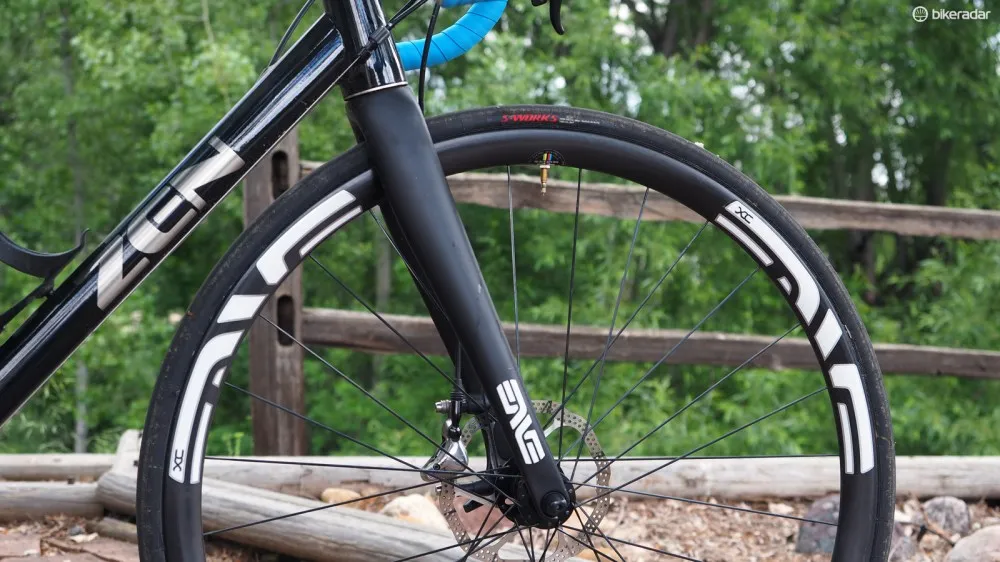
The Enve Composites fork is a fantastic pairing
The playfully quick handling requires just the slightest flick of the wrist to initiate a turn but never feels nervous or twitchy. Meanwhile, the extra mass, excellent chassis rigidity, and low 70mm bottom bracket drop lends great stability both when tucking on a straight or railing fast corners.
There’s also no denying the superior braking performance of disc brakes, which Zen offers exclusively on the ROAD. They’re a boon for diving deep into turns and scrubbing off speed at the last minute, and more than handful of forays on to sticky, muddy dirt roads demonstrated their advantages in terms of tire clearance (although their longevity in wet conditions is still in question).
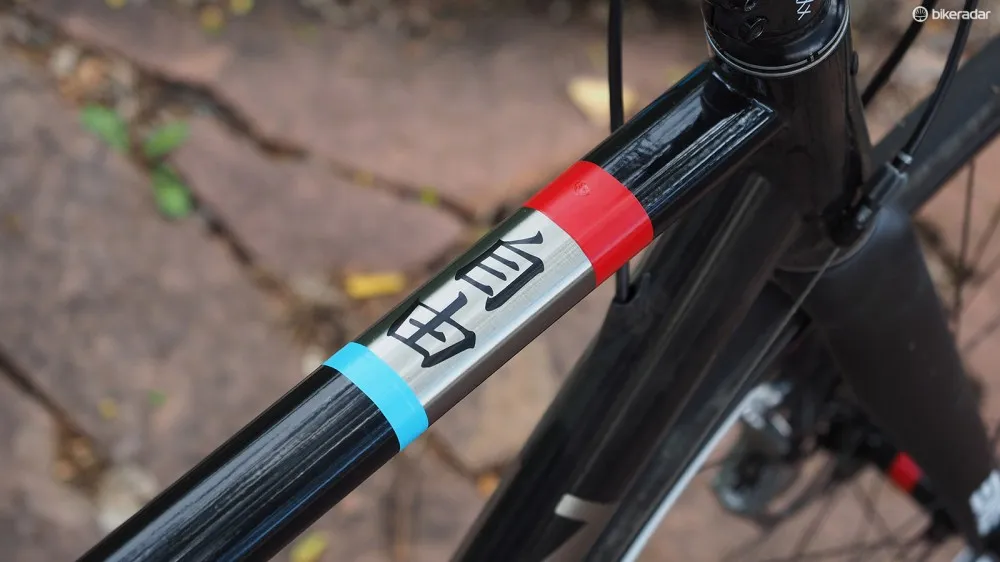
There's a little more weight to carry around with a steel frame but there's still nothing else like it
Either way, the ROAD might be a bit heavy but in every other way, it’s proven to be a great bike if you like to drop the hammer on occasion.
Old-school steel but modern alloys with contemporary shapes and features
The bike may be steel but it shares little with ferrous frames of yesteryear. Zen builds the frame with top-shelf Columbus Spirit HSS tubing, which boasts remarkably thin walls and some decidedly modern-looking cross-sections. The top tube is horizontally ovalized to boost torsional rigidity up front, while the oversized down tube sports a subtle teardrop shape that supposedly bolsters the bottom end.
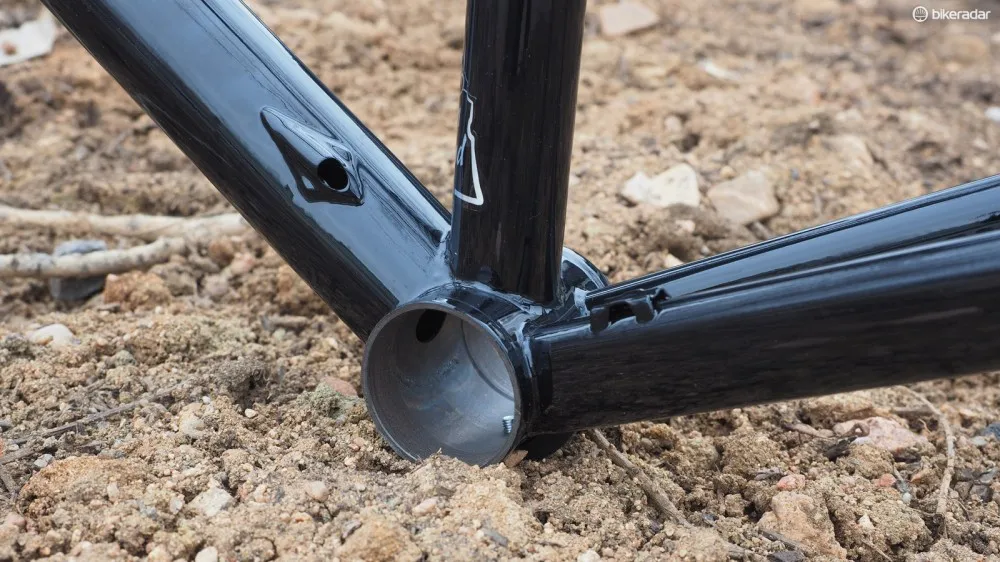
The PF30 bottom bracket shell is a little bit of a bummer but Zen says it's the only way to do internal Di2 wire routing with a steel frame
Meanwhile, there’s a gracefully tapered head tube up front for the latest 1 1/8-to-1 1/2in forks and a PF30 bottom bracket shell that works with oversized crankset spindles. Some might rightfully lament Zen’s choice of a press-fit system over a conventional threaded one – this is a steel frame, after all – but Zen says an oversized shell is a necessary evil to accommodate internal wire routing for electronic drivetrains.
More to the point, Zen at least does a great job of keeping that PF30 to the prescribed dimensions. Throughout months of regular riding and testing, there wasn’t a single peep, squeak, or creek coming out of the Enduro TorqTite bottom bracket I installed.
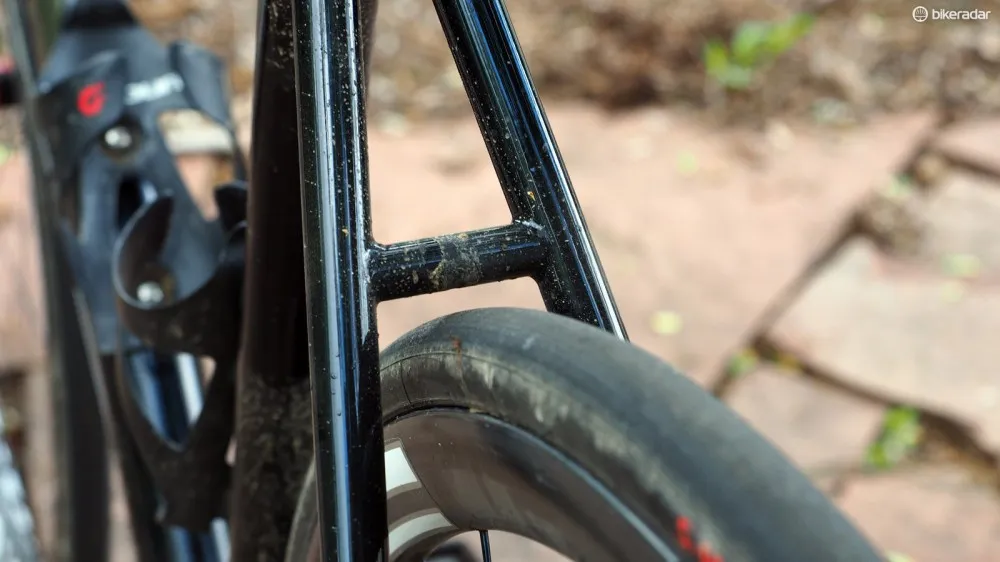
Clearance is quite generous all around
Out back are Zen’s own MOD dropouts, which feature interchangeable alloy inserts that easily convert between quick-release and thru-axle hub fittings. The rear brake caliper tabs are neatly integrated right into the non-driveside dropout plate, too, for a pleasantly clean and tidy look.
Zen foregoes fully internal cable routing in favor of a mixed layout with externally routed derailleur cables (with stops welded on to the head tube) and a rear brake hose that’s fed through the inside of the down tube but attaches to the top of the chainstay. It’s perhaps not as refined looking as a fully internal layout but it’s quite easy to set up and maintain – and it doesn’t take long to appreciate the goodness of external barrel adjusters.
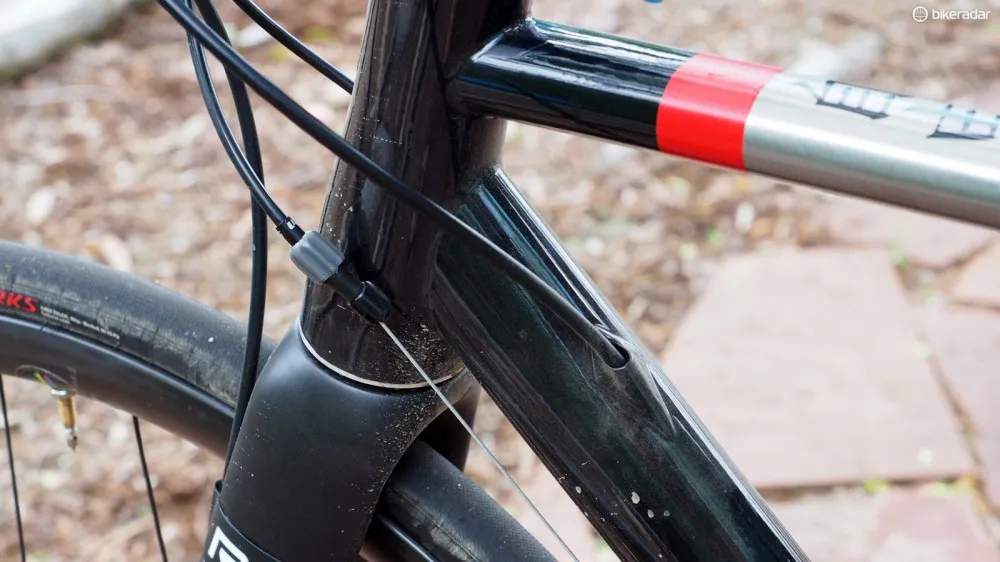
The internal routing is reasonably well done but could use a little more refinement
Those head tube stops end up as vestigial appendages if you decide to go with an electronic setup, however, and it’d be nice to see some additional sealing around the entry and exit ports for the brake line. You also have to be careful when building everything up to avoid the hose rattling inside the down tube.
Routing issues aside, there’s little arguing the fact that the Zen looks good with gracefully masked-off logos on the down tube, head tube, and chainstays, and just the hint of filigree on the top tube. In a world of overly logoed bikes, the Zen ROAD is a refreshing departure indeed.
Zen only sells the bike as a bare frameset so I won’t bother to comment on the non-existent complete build options. I will mention, though, that despite the frame’s relative heft as compared to some other material options, a carefully optioned complete bike can still be very light.
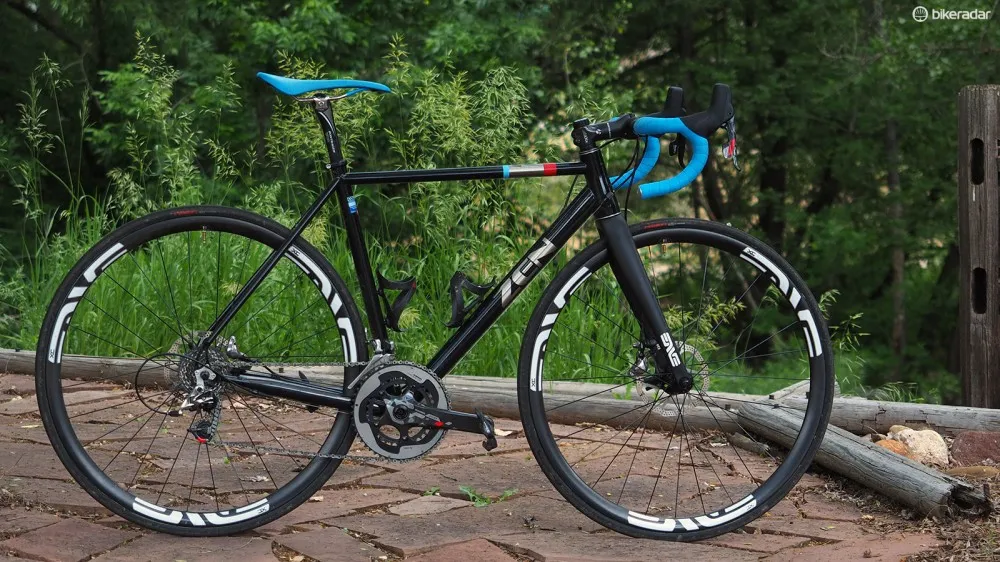
The frame may be a little heavier than a comparably priced carbon chassis but with a careful parts pick, the complete bike can still be very light
I set up my tester with a SRAM Red 22 HRD group, Enve 29XC disc wheels, Specialized Turbo tubeless clinchers, and Bontrager carbon finishing kit for a total weight of 7.83kg (17.26lb, without pedals or accessories) – not exactly a boat anchor.
Verdict: A great choice if you’re looking for something a little different
Riders looking for something slightly leftfield will invariably find a lot to like here. Steel bikes are already rare enough as it is these days, and the Zen ROAD is unquestionably a fantastic example of the breed. Zen also builds the ROAD completely in-house in its Portland, Oregon factory, the pricing is quite reasonable, and with the sole exception of weight, few folks are likely to find any faults with the bike’s performance capabilities. This is one rig I certainly wouldn’t have minded having for just a bit longer.
For more information, visit www.zen.bike.
